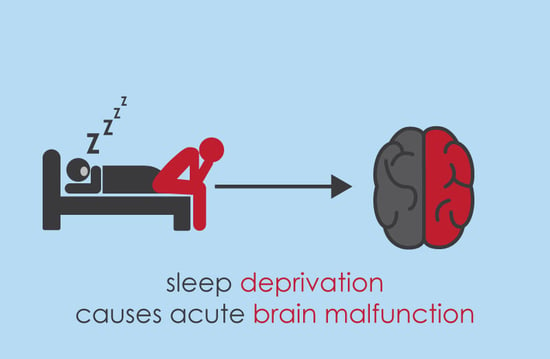
If you're getting insufficient sleep, there's a good chance you're suffering from a number of symptoms making life more challenging. In addition to feeling fatigued, you may be experiencing headaches, lack of concentration, and feeling more moody and irritable than usual. However, you might also find that your memory isn't as sharp as always. Many individuals may be shocked and surprised to learn that medical studies have proven that loss of sleep can lead directly to loss of memory.
What is a Memory?
A memory is defined as "the faculty by which the mind stores and remembers information." The process of retaining information begins at birth and continues until the end of life. The memories we make are divided up into three major memory processes known as the sensory register, short-term memory, and long-term memory.
The sensory register involves receiving cues from the environment to make a quick-impressioned recollection. As our brain gathers information through environmental cues, super short-term memories are formed that allow us to retain sensory information after the original stimuli have ended.
Short-term memory is formed when the brain stores information only temporarily. This is useful when we need to repeat information quickly, such as when someone tells you his or her phone number and you type it into your phone moments later. Short-term memory is also known as "primary" or "active memory" and can be thought of as a scratch-pad for nonpermanent recall.
Finally, long-term memory is where the brain stores more permanent information. Although long-term memory doesn't always store information forever, it keeps memories locked into the mind for recall longer than the sensory register or short-term memory. Types of memories stored in long-term memory range from how to drive a car to recalling state capitals to specific events that occurred in the past.
How is a Memory formed?
Memories are formed and stored in the human brain as a group of neurons that are primed to fire together in the same pattern creating the original experience remembered. Each part of a memory is stored in the part of the brain that initiated it and can be classified into the three types defined above (sensory register, short-term, and long-term).
To expand, according to Human Memory and researched by neurologists Karl Lashley and Wilder Penfield in the 50s and 60s, "Memories are not stored in our brains like books on library shelves, but must be actively reconstructed from elements scattered throughout the various areas of the brain by the encoding process. Memory storage is therefore an ongoing process of reclassification resulting from continuous changes in our neural pathways, and parallel processing of information in our brains."
Issues with memory retention occurs when retrieval cues and the original encoding of the information in your brain are mismatched. This mismatching impacts the retrieval process and can be directly impacted by inadequate sleep.
Memory and Sleep

At the University of California-Berkeley, Medical News Today reports that researchers have discovered that brain waves creating and dictating memory retention are produced during sleep. These brain waves that allow us to recollect transfer memories from the hippocampus to the prefrontal cortex.
To refresh our definitions of these parts of the brain, the hippocampus is a small organ located in the brain's medial temporal lobe. It forms an important role in the limbic system and also is associated strongly with the storage of long-term memory. The prefrontal cortex covers the frontal part of the brain wherein cognitive behavior, personality expression, decision making, social behavior, and memory retrieval. The hippocampus and prefrontal cortex have been shown to have a direct relationship with one another in encoding and recuperating memories. They also interact to create and collect memories.
Consequently, the brain waves produced in sleep that trigger this relationship between the hippocampus and prefrontal cortex are vital to sustain. When an individual loses out on sleep, the memories produced in the hippocampus cannot reach the prefrontal cortex. The long-term and serious effects of this result in significant memory loss and brain deterioration.
Associate professor of psychology and neuroscience and UC-Berkeley sleep researcher Matthew Walker stated, "What we have discovered is a dysfunctional pathway that helps explain the relationship between brain detention, sleep disruption, and memory loss...When we are young, we have deep sleep that helps the brain store and retain new facts and information. But as we get older, the quality of our sleep deteriorates and prevents those memories from being saved by the brain at night."
While these findings prove promising for memory loss treatments amongst the elderly who achieve less sleep at night, it also solidifies the seriousness of seeking treatment for sleep disorders for people of all ages. When the brain gets less than average sleep per night, memories are incapable of retention.
Seeking Help
If you believe that you or someone you know may be developing symptoms of memory loss due to sleep deprivation, it's highly important that help from a sleep professional is sought immediately. By seeking a diagnosis, one can improve sleep quantity and quality to aid in both memory development and retention.
The Anchorage Sleep Center is a full-service disorders diagnostic and treatment center located in Anchorage, Alaska. We are able to assist individuals in identifying and attending to sleep problems so that superior sleep can be achieved.
To begin, a consultation is performed with a board certified sleep specialist who helps select the appropriate diagnostic testing so that an effective, individualized treatment plan can be created. Contact us by sending a message online to take the first step in helping you get a better night's rest.

